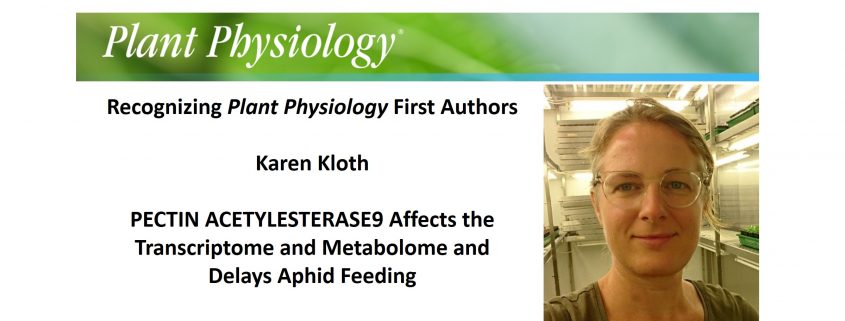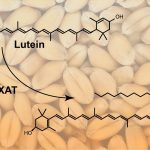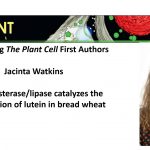Recognizing Plant Physiology first authors: Karen Kloth
Karen Kloth, first author of PECTIN ACETYLESTERASE9 Affects the Transcriptome and Metabolome and Delays Aphid Feeding
Current Position: Post-Doctoral Fellow at the Laboratory of Entomology, Wageningen University
Education: BSc and MSc in Biology, Phd in genetical genomics of plant-aphid interactions
Non-scientific Interests: Outdoor swimming, snorkeling, cross-country skiing, cycling, gardening
Brief bio: My early scientific career didn’t follow the conventional path, and in hindsight it feels reassuring that one can shape his or her own career. After obtaining my MSc, I worked in an educational department at the zoo and a governmental agency for several years (where I learned a lot and had great colleagues), before I decided to quit half of my job to do an internship in molecular phylogenetics. It was 2011 when I got the opportunity to do a full-time PhD in genetical genomics of plant-aphid interactions at Wageningen University. It was amazing to dedicate all my time to science. I had a split PhD position between three groups: the Lab. of Entomology, the Lab. of Plant Physiology and the more applied Bioscience team. This construction worked excellently. I got to know many people and was educated in the fundamental aspects of insect behavior and quantitative genetics and simultaneously worked on building a high-throughput phenotyping platform for the industry. After that, I was lucky to get a postdoc at the Umeå Plant Science Centre (UPSC) in northern Sweden where I could combine my love for plant physiology and Scandinavia. During two years, the UPSC was a stimulating and pleasant environment for me. In the group of Dr. Benedicte R. Albrectsen I finished my work on a fascinating phloem protein in 2017 (read more at https://doi.org/10.1105/tpc.16.00424) and got introduced into the world of cell walls, microscopy and northern lights. The results you can read in this new manuscript. Currently, I am back at Wageningen University on a personal Veni grant and pursue phloem-based resistance mechanisms to aphids.




